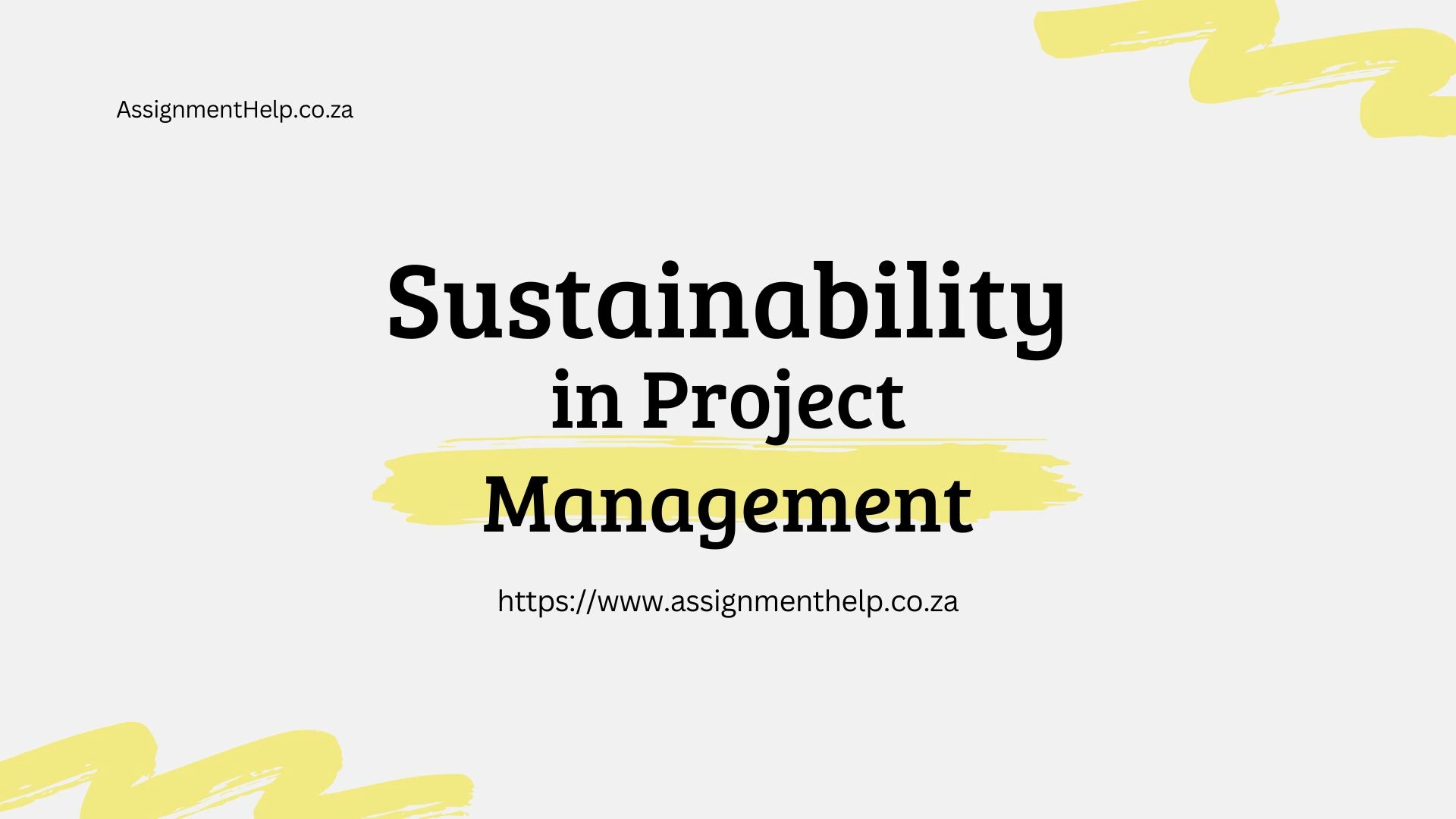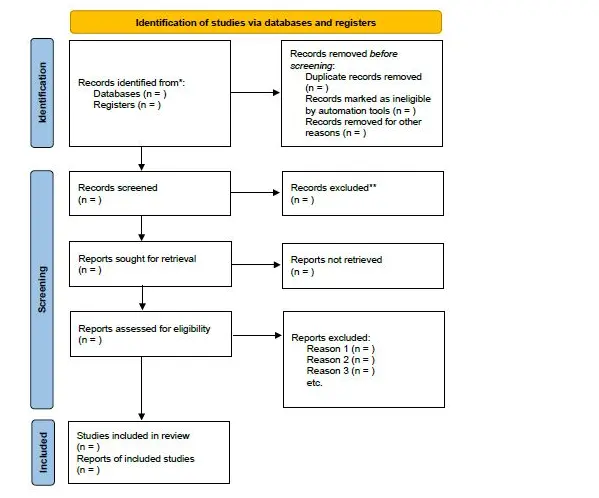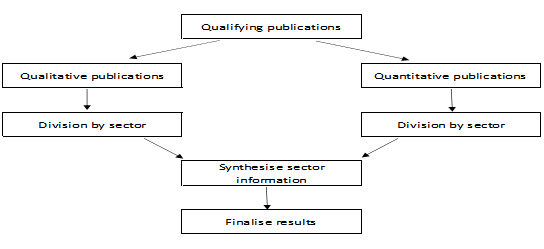
Contents
- 1 Investigating Sustainability Practices in Project Management: A Review of Environmental Considerations in Modern Projects
Investigating Sustainability Practices in Project Management: A Review of Environmental Considerations in Modern Projects
Introduction
As the human population continues to grow, so does the need for development of human infrastructure and systemsto maintain that growing population. Whether it be new houses, facilities, hospitals, factories or farm lands, all require detailed planning and project management to ensure their completion.
Because of the numerous mistakes made in the past during project implementation that had adverse effects on the environment, many governments, businesses and industries are facing enormous pressure to ensure that they integrate environmentally sustainable practices into their project operations. Sustainability is seen as a core element of project management, from planning right through the project execution and evaluation.However, it has been identified that many project manager struggle to implement sustainability practices as they lack the knowledge required, face barriers during implementation or aren’t able to find clearly defined methods for implementation.
This study aims to systematically review the literature on sustainability principles and their application in project management workflows. As such, a systematic literature approach will be conducted for this research
This research seeks to identify barriers that hinder the full implementation of these principles. The ultimate goal is to provide insights on how to enhance the integration of sustainable practices within projects while maintaining operational efficiency and adhering to budget constraints.
Problem
Background of the problem
Nature and the environment have faced numerous negative effects as direct consequences of human activity. From forests and other natural ecosystems being cleared to build infrastructure, or create farmlands, to the rivers, land, air and sea that are being polluted with the byproducts of human activity.
History has shown us that it is not only nature that suffers the side effects of our activity, but society as a whole is starting to face the consequences. Some examples are:
- Residential developments that are zoned and built too close to heavy polluting industries, often those that expel toxic fumes. People living close to these industries often develop numerous lung and breathing conditions – most notably in SA is the residents of the south Durban basin who live close to the Durban oil refineries. (Niranjan, 2005)
- Rivers and oceans being polluted by human waste and chemical wastes, leading to compromising of drinking water and food chains. (Vaal river pollution)
- Increased natural disasters brought on by soil erosion, flooding and landslides due to poor development planning without the consideration of natural disasters (DBN flood lines)
Sustainability has always taken second place during project planning and execution. Organisations know the importance of sustainable projects but lack in their follow-through which can be attributed to financial constraints, regulatory complexities, and a lack of standardised methodologies. An example being the addition costs of conducting Environmental Impact Assessment (EIA) which organisations often omit due to budget constraints.
Sustainable projects have gained increased attention and have become a crucial factor in project management. This is due to increased pressure put on companies to adhere to their social responsibilities and remain in public favour. In addition, governments and organisations have become stricter with their compliance requirements and many companies face fines due to negative environmental impacts that occur from their projects.
Companies benefit from being sustainable, as it is shown to increase stakeholder trust, and enhance their market image. Malik, Ali, Latan,Jabbour and Charbel (2023)
note that green projects in the modern age are seen to have a competitive advantage, known as the ‘Sustainable competitive advantage’ (SCA). However, the change into making projects more sustainable and environmentally friendly is often hampered by insufficient sustainability knowledge among project managers, resistance to change by senior management and shareholders (as costs increase) and a lack of standardised methods in incorporating it into projects. Leadership often underestimates the environmental impacts of projects, typically due to a lack of knowledge or a leadership style that does not promote sustainability.
Problem statement
The absence of standardised environmental integration in project management leads to detrimental outcomes. Which results in issues such as high waste production, ecological degradation, and an increased carbon footprint.
Due to the complexities of modern projects and the increased pressure on sustainable practice integration, project managers faced with difficulties in implementing them into their workflows. This stems from a lack of knowledge and experience, resistance to change and competing priorities such as profit maximisation.Soares, Antonieta, Fernandes, Jose. (2024) states that, as sustainability reshapes the Project management profession, an urgent demand has emerged for practical methods, tools and techniques tailored to assess sustainability at the project level
In order to prevent and minimise these issues, the implementation of standardized environmental procedures within project management is crucial. By doing so, organizations can reduce their environmental impacts, comply with regulations, and promote long-term sustainability
Sub-problems
- An understanding of the barriers that prevent the implementation of sustainable practices within project management.
- The role stakeholders play in promptingorganisations to implement sustainable practices.
- The impact of workplace cultures on the adaptation of sustainable practices.
- Identifying and evaluating key sustainability practices in project management.
- Identifying how advancements in technology can aid in enhancing the adaptation of sustainable practices.
- Government regulations and environmental laws that can cause additional complexities for the implementation of sustainable practices
- Measures that organisations include in their project management practices to measure the environmental impact of their projects.
Research Questions
Primary research question
How are sustainable practices, with a focus on environmental considerations, prioritised and integrated into modern projects?
Secondary research questions
- RQ 1.How do organisations evaluate the environmental risks and impacts during project execution?
- RQ 2.Which sustainability methods have been the most effective in minimising the negative impacts on the environment?
- RQ 3.What are the long-term benefits to organisations that stem from the implementation of sustainable practices in project execution?
- RQ 4.What are some of the common environmental considerations in project management?
- RQ 5.What challenges arise when implementing sustainable practices in projects?
- RQ 6.What are the best practices to apply to ensure that the environmental considerations form part of the project life cycle?
Research Objectives
Primary objective
To systematically review the current sustainability practices in project management with focus on the environmental considerations and to identify the best practices to implement these practices into a project’s lifecycle.
Secondary objectives
RO 1.To identify methods that will enable project managers toevaluate the environmental risks and impacts during project execution
RO 2.To determinethe key sustainability methods that will be the most effective in minimising the negative impacts on the environment.
RO 3.To define the long-term benefits to organisations that stem from the implementation of sustainable practices in project execution.
RO 4.To describe all the common environmental considerations in project management.
RO 5.To demonstrate the challenges that arise when implementing sustainable practices in projects
RO 6.To determine the best practices to apply to ensure that the environmental considerations form part of the project life cycle.
Significance of the Study
The world is becoming increasingly environmentally conscious in every decision we make as there is a common understanding that environmental sustainability is key to the survival of our species. Many large corporations are now promoting their transition to sustainable practices, while governments are frequently updating environmental regulations. One notable initiative is the 17 Sustainable Development Goals (SDGs) adopted by the United Nations in 2015, which aim to address various challenges facing humanity. As such, a deep understanding of the best sustainability practices to be incorporated into project management becomes a crucial factor that will determine a project’s success.
Despite the growing emphasis on sustainability practices, literature has yet to be synthesised to provide project managers with clear guidelines and methods of adaptation. Most studies focus on individual cases or sector-specific applications, rather than a holistic review of sustainability with focus on the environmental considerations.
Sustainability practices influence factors such as waste generation, adherence to regulatory compliance and the long-term success of an organisation. This study will aid on the understanding of sustainability principles within project methodologies and assist project managers in adopting effective environmental sustainability practices. The study can also be used as a guide for policy frameworks that focus on sustainable project development.
This study is urgently required as emphasis is being placed on environmental sustainability in the form of climate change polices, such as South Africa’s National Climate Change Response Policy (NCCRP) and The Climate Change Act 22 of 2024, cooperate mandates and public attention.
This systematic review will cover the sustainability practices and methods applied to project management across various sectors, focusing on the environmental considerations, carbon footprint reduction, use of resources and ecological impact mitigation strategies employed.
The study will identify and highlight the best practices to be adopted as well as look into areas where improvement is needed. This study aims to uncover any caps and formulate methods to close those gaps so as to achieve effective implementation of sustainable practices within the field of project management. The findings of this study can also be used as a guide by project managers who wish to adopt or improve on their adoption of sustainable project management practices.
To ensure the credibility of this study, it will follow a structured research method with well-defined search criteria, as well as inclusion and exclusion criteria. Only credited articles such a peer-reviewed sources and industry reports will be qualified. In addition, quality assessment tools will be employed such as PRISMA methods.
Research Methodology
Type of review
This study will follow a systematic literature review as the method of research. It will focus on
the analysis of existing studies that focus on sustainability practices within project management. The systematic review will follow guidelines as per the Preferred Reporting Items for Systematic Reviews and Meta-Analyses (PRISMA) in the review process.
The reason this type of review was chosen is that it provides for an unbiased, thorough and replicable framework for assessing environmental sustainability practices within project management. The consolidation of the findings from various sources will aid in identifying research gaps, assisting in informing policy makers, and serve as a resource for advancing sustainability in project implementation.
Search strategy
A comprehensive search of reputable academic databases and sources will be undertaken.
This will be done to minimise publication bias by including a wide range of sources and studies
The databases will include:
- Google Scholar
- Scopus
- Research Gate
- MDPI
- Emerald
- Science Direct
- Web of Science
- Verified organisational sites – Such as the Department of Environmental Affairs, UN, etc.)
The use ofthe following keywords will be employed to narrow down the search.
- Sustainable project management.
- Environmental considerations in projects.
- Environmentally friendly project management.
- Sustainability practices in projects.
Inclusion criteria will be based on the following aspects:
- Publications not older than 2015.
- Publications in English.
- Publications that are peer-reviewed.
- Open-source publications with full text available.
- Grey literature.
- Publications involving project management.
Exclusion criteria will include:
- Publications before 2015.
- Publications not in English.
- Opinion pieces.
- Studies outside project management.
- Duplicated publications.
- Publications with no reference to the environment.
Selection criteria
Selection will most importantly be studies based on the relevance to the research topic.
Selected studies must align with the following aspects:
- Focus:The study must address sustainability or environmental considerations within the context of project management.
- Scope: The study mustdiscuss or analyse sustainability practices, frameworks, tools, or strategies used in managing projects.
- Context: The research must be conducted within modern project environments, such as construction, IT, infrastructure, engineering, etc.
- Type of Study:Acceptable study formats empirical studies (qualitative, quantitative, or mixed methods), literature reviews, or case studies
- Publication Status: To ensure credibility and reliability, the studiesneed to be peer-reviewed and published in recognized academic journals or websites.
- Geographic Scope: A global approach will be considered to provide a wholistic view of the sustainability practices employed.
Studies will be excluded if they:
- Do not Focus on sustainability within a project management framework.
- Focus only on economic or social sustainability and do not specifically address environmental considerations
- Are not related to project-based work e.g. general organizational sustainability without a project management application.
- Are not from accredited sources such as opinion pieces, editorials, non-academic sources, and non-peer-reviewed reports.
- Are published before 2015
- Are not available in full-text or are written in languages other than English not in English
The study will employ the use of the PRISMA flow diagram (below) for the selection of qualifying publications to be used in the study.

Data extraction
The data extraction process will involve identifying the key themes, practices and outcomes from the selected studies acquired, information gathering on publication objectives, methodologies, findings and conclusions. AsAfifi, Stryhn, & Sanchez (2023) state, data extraction encompasses a series of steps from planning and deciding on the data items that need to be captured until the data is ready for export to statistical software for analysis.
This extraction will look at the context of the study, sustainability practices, environmental impacts and challenges faced in implementation. All of which will then be extracted using a standardised template to record the information following the below processes:
1. Identification of Relevant Data Items
- Establishing core themes.
- Defining key variables.
- Reviewing publication objectives.
2. Source Selection
- Primary secondary data sources such as Peer-reviewed journals, literature reviews, and case studies.
- Ensuring sources are aligned with inclusion criteria
3. Information Gathering and Documentation
- Extracting detailed study methodologies
- Recording key findings and conclusions
- Documenting barriers to implementation
4. Data Organization and Standardized Recording
- Using a standardized template to capture relevant data points from each source
- Categorizing information under predefined headings
- Ensuring data consistency by applying uniform coding and classification across all extracted materials.
Quality assessment of data
To ensure that this systematic literature review contains reliable and relevant information as well as adhere to the selection criteria laid out, the evaluation of the gathered publications will follow the guidelines laid out by standardised assessment tools such as the PRISMA framework and Critical appraisal skills program (CAPS) for systematic literature reviews or AMSTAR checklist.
According to Distiller (2025), although systematic reviews are designed in a way to produce robust, reliable, and reproducible results, they are still open to biases and errors. To aid in preventing this, the Cochrane Risk of Bias Tool will be used to assess quantitative studies while qualitative studies will be evaluated based on their transparency.
This will ensure that the data gathered is unbiased and relevant to the research topic, as well as enable the selection of high-quality information.
Analysis of data
Data analysis of the information is required to synthesise all findings, identify trends and formulate a meaningful conclusion. According to an article byVrije Universiteit Amsterdam, (2024), Once the data is properly retrieved it needs to be standardised so that the results of the different studies can be compared. For all identified and qualifying qualitative publications, a thematic analysis will be applied. This will involve coding the extracted data, formulating themes and looking for patterns between the various studies related to sustainability practices in project management that are focused on the environmental considerations.
For all identified and qualifying quantitative studies, a meta-analysis technique will be applied. This study will also preform a comparative analysis to evaluate the differences in environmental sustainability practices across various sectors such as construction, manufacturing and agriculture.
Analysis flow diagram:

Source: Author’s Own Work
Measures to ensure reliability and validity
Appraising systematic reviews involves several steps that evaluate the review’s quality as well as the extent to which the review authors adhered to established guidelines for conducting a systematic review(Shaheen et al., 2023). To ensure that the findings of this study are accurate and replicable, multiple measures will be implemented.
Reliability measures:
- To maintain consistency of data, literature will be chosen strictly based on the predefined inclusion and exclusion criteria.
- PRISMA guidelines will be followed to maintain a structured and transparent review process.
- To allow the reproducibility of findings, methods will be documented.
Validity measures:
- The study will include a comprehensive literature review from various sources over the past 10 years.
- To prevent any form of bias, tools will be employed such as Cochrane risk to bias tool and CAPS checklist.
- Triangulation will be used to verify findings by comparing data from multiple sources.
Ethical guidelines
In accordance withWager and Wiffen (2011)systematic literature mustfollow the general conventions on publication ethics and guidelines produced by various organisations.To ensure ethical principles in data extraction and analysis will be applied, the following will be applicable:
Ensuring Data is reputable and Ethically Accessible
- Data will be sourced from reputable sources, such as government databases, academic journals, and peer-reviewed publications.
- Formal authorisation will be obtained for the use of any proprietary or restricted data.
Obtaining Ethical Clearance
- Where required, Formal ethical approval will be requested from relevant ethics committees.
- The research will comply to the to ethical codes set international research standards regarding secondary data usage.
Citing and Acknowledging the Data Source
- Proper referencing will be maintained for all source. All contributors and institutions will be acknowledged to maintain academic integrity.
Avoiding Data Manipulation
- No selective reporting or misrepresentation will be allowed for.
- Analysis techniques will be applied and following standardprocedures to prevent data distortion.
- Any limitations in the data e.g. missing information, will be disclosed.
Protecting Vulnerable Groups
- Precaution will be taken to ensure privacy and ethical sensitivity should the data includes information related to vulnerable groups.
- To protect individual identities and sensitive information, data anonymization will be applied.
Expected Outcomes and Implications
The goal of this study is to provide a detailed compilation of existing information, focusing on environmental sustainability within project management.
This study will provide a structured guide for project managers to incorporate environmental sustainability principles into projects by highlighting the most effective practices available, leading to greener business operations. This study will also help identify gaps and limitations in current sustainability practices.
Organisations can use this study to integrate sustainability principles into them polices to improve brand reputation, operational efficiency and long-term profitability. In addition, the study supports the United Nations SDGs.This study will also help identify gaps in existing literature, which researchers can use as direction for future academic study.
Should this study not be conducted, there will remain a significant gap in the understanding of sustainability practices within project management and how to effectively implement them into modern project planning. This can then lead to further negative impacts on the environment as the lack of implementation will lead to high waste production, ecological degradation, and an expanded carbon footprint.
Related samples
Staff User Experience with Learning Management Systems
Total Quality Management Role in Customer Retention
Medical Artificial Intelligence Technology for Health Equity
Remote Operations Impact on Performance in IT Industry
Business Rescue and Employment Safeguards in South Africa
Assessing the Role of Artificial Intelligence on Leadership


 Best Research Proposal Writers
Best Research Proposal Writers